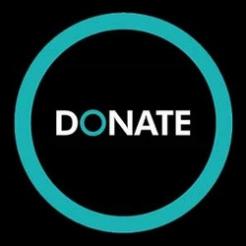A charity given government backing to run a fundraising platform paid half its income last year to its founding trustee's companies, causing the Charity Commission to offer it "advice and guidance".
The National Funding Scheme runs the Donate giving platform, which offers a similar service to Justgiving and Virgin Money Giving, but charges 45 per cent of gift aid to do so.
In the National Funding Scheme’s accounts for the year ending 30 September 2015, recently submitted to the Charity Commission, it states that the charity paid Panlogic Limited £49,512 for “rent, marketing and staff time”. It also paid Digital Information and Giving Limited £23,664 for “hosting and maintenance costs” and £100,000 for a three-year software licence.
William Makower, who set up the National Funding Scheme in 2013 is a shareholder in both companies. The scheme has received support from the Arts Council, Big Lottery Fund and Nesta and is backed by the Cabinet Office.
This year the charity received grants of £50,000 from the Arts Council, and £10,000 from the Garfield Weston Foundation. Last year the Arts Council gave the charity £111,000. In 2013 and 2014 Nesta granted a total of £200,000.
Its total income for the year was £340,961 with expenditure of £420,676.
The charity’s accounts also say that one of the companies and Makower provided pro-bono support during the year. It values the support provided by Makower at £46,512, that of Panlogic Ltd at £48,415.
A spokeswoman for the charity confirmed that both contracts had been awarded without competitive tender.
She said: “Digital Information and Giving is the owner of the technology behind the Donate platform, and therefore is best placed to provide development and maintenance services. It would incur an unnecessary expense to procure the services from an unrelated third party.
“Panlogic provides administrative support to NFS at a significantly reduced rate, as well as a significant amount of pro bono advice (as you can see from the accounts). The trustees have considered whether it would be possible to obtain the premises and administrative support elsewhere for a similar cost and consider it unlikely.”
She added that: “The trustees are very much aware of the potential for conflict of interest. We keep the relationship with these two entities under regular review and have conflict of interest procedures in place to ensure William Makower does not take part in decisions where there is a conflict.”
In June 2015 the Commission opened an operational compliance case. It closed this in January 2016 after providing advice and guidance.
A spokesman said: “The Charity Commission opened a case in June 2015 to follow up on assurances made at registration. We examined the relationship between the charity and two private companies owned by one of the trustees. We also examined how the trustees managed the conflict of interest caused by this arrangement.
“We reviewed the systems and controls the trustees had in place to ensure that any funds donated to charities via the Donate platform were protected and kept separate from the charity’s operational funds. We provided the trustees with clear guidance on managing conflicts of interest, decision making and protecting the charity's reputation.
“We also advised them to continue to review their arrangements with the private companies, and with the conflicted trustee, to ensure they are in the charity's best interests and that any private benefit received is no more than incidental. The trustees cooperated fully with the Commission and we closed our case in January 2016.”
Both companies are too small to file full accounts with Companies House. Digital Information and Giving’s latest accounts show it ended the last financial year with assets worth £11,330. Panlogic Limited ended its last year with assets of £254,919.
Over 300 organisations registered with Donate
The accounts show that the number of organisations registered with Donate grew from 54 the previous year to over 300. A launch event to encourage charities to sign up had been held at the Houses of Parliament.
Donate processed 5,741 donations, raising £292,155. It charged a total of £12,784 in commission.
The platform charges 45 per cent of gift aid from donations made to charities through the platform. On a £100 donation with gift aid, charities would receive around £113, which is less than JustGiving (between £122 and £118), Virgin Money Giving (over £120) and MyDonate (£124.80).
For donations made without gift aid it charges 2.5 per cent of the donations. From 1 September 2015 it introduced one-off registration fees for organisations with an income of more than £100,000. Those with an income of £100,000 to £500,000 are charged £75, those between £500,000 and £5m £200 and those over £5m £400. These fees are reduced if the charity raises a set amount.
At the same time it opened the platform to all organisations with a charitable objective. When it launched it was just available to arts organisations.
The charity has previously claimed it is differed to other platforms because it is a registered charity and it has a mobile-first approach.
Unrestricted funds deficit
The National Funding Scheme reported a deficit of unrestricted funds of £13,193; this is less than the previous year when it was £19,739.
The accounts say that: “It is anticipated that income generated from the digital fundraising platform will increase significantly as it becomes more established and the charity will have the opportunity to uild up its free reserves towards the target level.”









